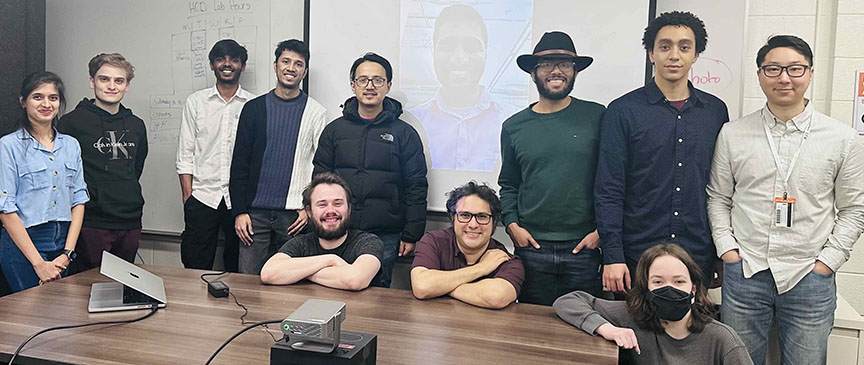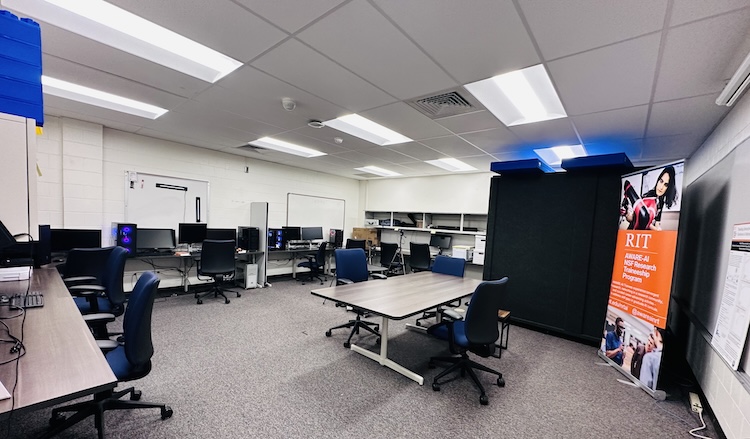Home Page
The Computational Linguistics and Speech Processing (CLaSP) lab at RIT is dedicated to advancing fundamental and use-inspired AI research involving text, speech, sign language, dialogue, and multimodal data.
CLaSP provides research opportunities for PhD, MS, and undergraduate students, and the lab hosts a regular student research discussant series. The lab collaborates closely with other research groups on campus. Recently graduated former students have gone on to jobs in AI, software and user interface development, human factors, etc. including employers such as EyeGaze Inc, ISI USC, Amazon, Digital Ocean, Apple, SpaceX, Qualcomm, Cogent Labs (Japan), UL-Wiklund, Athena Health, Commonwealth Care Alliance, Nordstrom Technologies, Facebook, Kodak Alaris, Microsoft, IBM, Thompson Reuters, Smartvid, and Interactive Brokers.
For more information, please contact Dr. Alm (cecilia.o.alm@rit.edu). The lab is located in LBR-A220. We welcome students from artificial intelligence and computing, cognitive science, neuroscience, experimental psychology, or related disciplines. Prospective or current RIT students interested in joining the CLaSP lab should contact Dr. Alm directly.

Back row left to right: Shriya Chepur, Jordan Quinn, Pavan K. Bellam, Kaustubh Gaikwad, Rajesh Titung, Aniket N. Patil (on screen), Jordan De Pina, Cedric Bone, and Gabriel Park. Front row lefto to right: Hayden Orr, Michael Peechatt, and Isabelle Arthur.

Computational Linguistics and Speech Processing (CLaSP) Lab in LBR-A220





